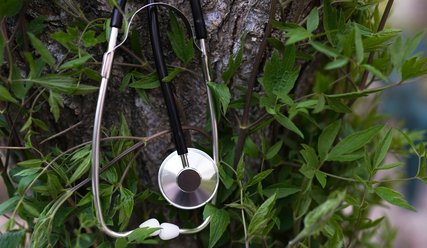Fighting COVID-19 with a vaccination plan for an entire country
College Fellow Dr Joe Bourne was one of the hundreds of frontline medical workers who responded to the threat of a global pandemic, in his role as incident controller for the Bay of Plenty (BOP) COVID-19 response.
Now he is part of the Ministry of Health team working to design a programme to immunise an entire country within a year, where he provides essential input on the needs of GP practices and communities.
“It’s a real challenge to create an operational model that provides the framework DHBs and other health care providers need, while being flexible enough to allow for the diverse communities we have in New Zealand,” he says.
“It’s even harder when the climate you’re working in is dynamic and ever-changing, with new considerations turning up almost every day."
“It’s a very complex situation, but vaccinating our population is a vital tool in preventing the the high levels of mortality and morbidity we have seen in other countries.”
Born in the UK, Joe grew up in Teddington, South West London before his father’s job took the family to the Netherlands.
His decision to become a doctor was based on his enjoyment of The Citadel, an 80’s television mini-series that followed the attempts of an idealistic young doctor helping people living in a 1930s Welsh mining town called Drineffy.
“I had some vague notions about being able to help people; was good at science and maths and very impressionable, so medicine it was,” Joe laughs. “Of course, once I had told my teachers at school that’s what I wanted to do, I was set on the pathway to medical school.”
“Come to think of it, all my decisions have been made depending on what I was watching on the television at the time,” he adds. “When it came time to choose a speciality, it was George Clooney in ER, so emergency medicine was what I chose.”
George certainly did him a favour, as he met his future wife Woody on his first day at the King’s College Hospital Emergency Department. But although he enjoyed his work, he found he wanted to be more involved in the lives of his patients.
“I was more interested in building relationships with my patients, understanding their context and providing holistic care, rather than a narrow focus on a single acute presenting complaint,” he explains. “There was a lack of continuity in hospital work that I found unsatisfying.”
After a stint working in Liberia, while Woody travelled around India, the couple made their home in Brighton, where Joe started his GP training and Woody prepared for the arrival of their first child.
“The baby was a bit of a surprise for us,” says Joe. “But I promised Woody that it wouldn’t stop us doing all the things we wanted to do, including travelling the world.”
“Which is how we ended up on a 15 month working holiday in New Zealand! And we loved it so much, it didn’t take us that long to decide to come back and make our home here.”
Joe works at the Poutiri Wellness Trust in Te Puke, a kaupapa Māori healthcare provider. He also held the role of GP Liaison at the BOP DHB before becoming Clinical Director Innovation and Improvement.
Based on his experience of working across the health system in the BOP he was asked to lead the community-based team responding to the threat of the COVID-19 pandemic arriving in New Zealand, later becoming the incident controller of the overall response for the area.
“We have been lucky in this country, that a combination of quick action, clear communication, and geography kept the virus from getting a toe-hold in our community,” he says. “It’s given us the opportunity to plan a co-ordinated, considered approach to the vaccine roll out based on scientific principles appropriate for our context. The sequencing framework approach means we can ensure an equitable approach based on need while continuing to operate our usual health system."
“New Zealand still has a functioning, business-as-usual, healthcare system that serves our commnuity every day. We need to allow that to continue while also rapidly giving New Zealanders access to the COVID-19 vaccination.”
He says the New Zealand response to the pandemic has been one of the best anywhere in the world, and the rollout of the vaccination programme is well underway. He acknowledges that many medical practictioners have been frustrated that the initial roll out of the vaccination campaign has been not been delivered through general practice, but says that as the programme scales up, general practice will play an increasingly important role.
“The trusting relationships GPs have with their patients will be key to reassuring our community that the COVID-19 vaccine is both safe and effective.” He hopes that having a general practitioner as part of the leadership team strengthens the voice and improves the understanding of general practice within the programme.
“Vaccination really is the ultimate weapon in fighting this virus, and it is a real priviledge to work at the centre of the response effort,” he says.
I know many people are anxious, and they want the vaccine as soon as possible, but there have been very few community cases in recent months, and these have been quickly isolated. We do not have the same pressures as other countries with community transmission, although we still want to roll out the vaccine as swiftly as possible so that we can start to open our borders to the rest of the world.”
“New Zealand still has a functioning, business-as-usual, healthcare system that serves our commnuity every day. We need to allow that to continue while also rapidly giving New Zealanders access to the COVID-19 vaccination.”
He says the New Zealand response to the pandemic has been one of the best anywhere in the world, and the rollout of the vaccination programme is well underway. He acknowledges that many medical practictioners have been frustrated that the initial roll out of the vaccination campaign has been not been delivered through general practice, but says that as the programme scales up, general practice will play an increasingly important role.
“The trusting relationships GPs have with their patients will be key to reassuring our community that the COVID-19 vaccine is both safe and effective.” He hopes that having a general practitioner as part of the leadership team strengthens the voice and improves the understanding of general practice within the programme.
“Vaccination really is the ultimate weapon in fighting this virus, and it is a real priviledge to work at the centre of the response effort,” he says.
Related

11 September 2025 | College and members
GPs want patients to be seen, heard and known

21 May 2025 | College and members
Budget 2025 opinion: We don't need to create a new health service, we need to invest in the current one

26 March 2025 | College and members